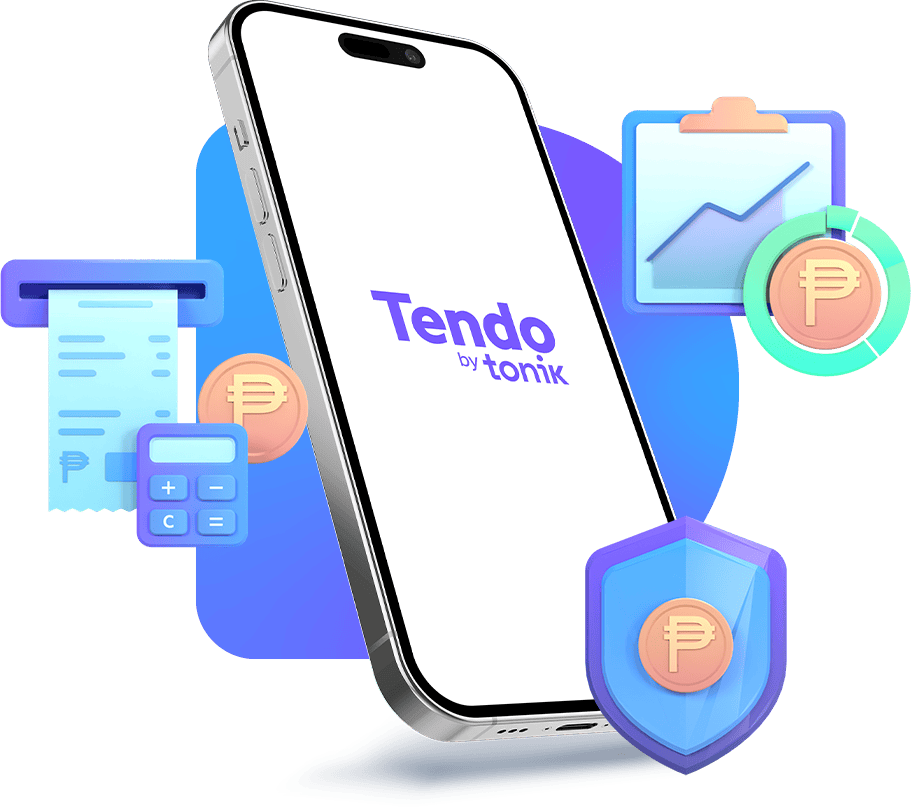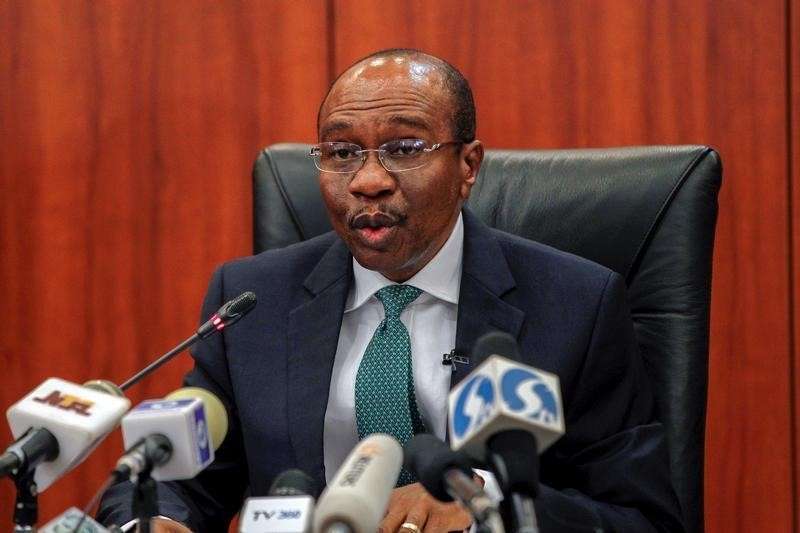Economy
Understanding the Costs and Fees Associated With Online Personal Loans

Personal loans are offered by both traditional and online lenders. If you’re looking for a personal loan, understanding the costs and fees associated with it is one way to help determine if the cost of the loan outweighs the benefits.
There can be many benefits to taking out an online personal loan rather than a traditional one, but there could also be some drawbacks as well. Before you borrow money from any company or lender, it’s important that you receive all of your information as well as understand what you’re signing up for in order to make the best decision possible for yourself. The following article will provide information on how much traditional and online personal loans typically cost so that you can know exactly what to expect before you decide to take out a personal loan.
Interest Rates
One of the most common fees associated with a personal loan is the interest rate, which can greatly affect how much money you have to pay back overall. Traditional lenders typically have higher interest rates than online companies as well as those from some smaller local stores. In addition, some traditional lenders may require that borrowers maintain a specific credit score or certain monthly income in order to qualify for their loans.
This can be true of many different types of lending institutions including both banks and other financial businesses such as credit unions and savings and loans associations. If you don’t already have an idea of what your credit score might be, it’s usually a good idea to check out this guide to personal loans ahead of time in order to ensure that you can be approved for a loan before you apply. It helps to know which loan options you will be comfortable with regarding the amount you loan and paying back.
While online lenders may offer lower interest rates for personal loans, they aren’t always guaranteed and could potentially change depending on certain factors such as your credit score or how much you borrow. If your credit score is below average, it’s also possible that you won’t even qualify for an online loan at all as many of them require a minimum credit score in order for borrowers to receive approval. It’s important to consider the possibility of this type of scenario if you need money fast and don’t have very good credit.
Application Fees
Along with the interest rate, you should also be aware of the application fee, which is a fee applied when you first apply for your loan. For example, many traditional lenders will charge borrowers an application fee regardless of whether or not they are approved for a loan in order to cover administrative costs associated with checking their qualifications. Institutions offering installment loans for bad credit may or may not have application fees collected, but an origination fee may be charged.
In addition, unlike mortgage origination fees, which are usually negotiable, it isn’t the case with most personal loans. This doesn’t mean you should avoid getting this loan. Some loans with origination fees have low APRs, which can be advantageous for you, so review your options first by pre-qualifying for multiple loans if possible.
While online lenders usually don’t charge an application fee to borrowers, there are some institutions that do. If you can’t afford to pay upfront costs in addition to your monthly payments throughout the life of your loan, it’s important that you find out what fees are required before choosing where to take out your money from. Some lenders may only require that applicants pay their interest rate but others could require additional expenses such as processing fees and possibly even insurance premiums for covering the loan itself.
Prepayment Penalties
If you need to pay back your personal loan before the standard repayment term is up, you could potentially incur fees if you’re unable to do so beforehand. This fee is known as a prepayment penalty, which some lenders may require borrowers to pay in order to compensate for business expenses that were incurred during the processing or administration of an account. Borrowers would only be responsible for this fee if they are unable to make their regular payments without defaulting on the loan entirely. If an individual exceeds their credit limit on any type of credit card, it may trigger potential penalties such as this one.
There are many different types of lending institutions out there and not all of them will charge prepayment penalties. If you know that you’ll be able to make your payments on time, it’s best to shop around as much as possible before deciding which company to take out your loan from.
Other Fees You Should Know About
Credit Unions or Other Lending Institutions
Although many traditional financial institutions such as credit unions may offer very low rates and fees for borrowers, they aren’t always available for everyone and can potentially have restrictions depending on your location or certain qualifications that must be met. For instance, some credit unions only serve members who meet their organization’s requirements such as having a specific job title or living in a specific area.
Loans with Guarantor
If you apply for a personal loan through a company that requires a guarantor in order to approve your application, be sure to find out what they’ll charge for this service. In some cases, companies may also request additional fees from the co-signer who vouches for another individual’s ability to repay their debts on time.
Stopping Payment on Check Loans
If you took out a loan against your upcoming paycheck, it’s important that you know how much it will cost if you ever need to stop payment on a check before it has been cashed by the lender. Most institutions will require borrowers to pay an amount equivalent to at least one full cycle of interest regardless of whether or not the check was actually deposited.

Online lenders are beginning to rise in popularity over traditional lending institutions because they typically don’t require borrowers to pay the same fees or interest rates that many brick-and-mortar companies do. Although online loans may come with lower costs, it’s important that you factor in all fees before choosing where to apply for your loan to ensure that the rate you’re offered is fair for your financial situation.
If you feel like you would be more comfortable speaking with someone directly, there are also many different places you can go in order to apply for a personal loan in person. Even if you’re certain an online lender will approve your application, it never hurts to check out what other options are available so you can compare costs and determine which one would be the best solution to meet your needs.
Economy
LIRS Urges Taxpayers to File Annual Returns Ahead of Deadline

By Modupe Gbadeyanka
All individual taxpayers in Lagos State have been advised to file their annual tax returns ahead of the March 31 deadline.
This appeal was made by the Lagos State Internal Revenue Service (LIRS) in a statement issued by its Head of Corporate Communications, Mrs Monsurat Amasa-Oyelude.
The notice quoted the chairman of LIRS, Mr Ayodele Subair, as saying that timely filing remains both a constitutional and statutory obligation as well as a civic responsibility.
The statutory filing requirement applies to all taxable persons, including self-employed individuals, business owners, professionals, persons in the informal sector, and employees under the Pay-As-You-Earn (PAYE) scheme.
In accordance with Section 24(f) of the 1999 Constitution of the Federal Republic of Nigeria, Sections 13 &14(3) of the Nigeria Tax Administration Act 2025 (NTAA), every individual with taxable income is required to submit a true and correct return of total income from all sources for the preceding year (January 1 to December 31, 2025) within 90 days of the commencement of a new assessment year.
“Filing of annual tax returns is not optional. It is a legal requirement under the Nigeria Tax Administration Act 2025. We encourage all Lagos residents earning taxable income to file early and accurately.
“Early and accurate filing not only ensures full adherence with statutory requirements, but supports effective monitoring and forecasting, which are critical to Lagos State’s fiscal planning and long-term sustainability,” Mr Subair stated.
He further noted that failure to file returns by the statutory deadline attracts administrative penalties, interest, and other enforcement measures as prescribed by law.
To enhance convenience and efficiency, all individual tax returns must be submitted electronically via the LIRS eTax portal at https://etax.lirs.net. The platform enables taxpayers to register, file returns, upload supporting documents, and manage their tax profiles securely from anywhere.
In keeping with global best practices, Mr Subair reiterated that LIRS continues to prioritise digital tax administration and taxpayer support services. He affirmed that the LIRS eTax platform is secure and accessible worldwide. Taxpayers requiring assistance may visit any of the LIRS offices or other channels.
Economy
NNPC Targets 230% LPG Supply Surge to 5MTPA Under Gas Master Plan 2026

By Adedapo Adesanya
The Nigerian National Petroleum Company (NNPC) Limited has said the Gas Master Plan 2026 targets over 230 per cent scale-up of Liquefied Petroleum Gas (LPG) supply from 1.5 million tonnes per annum (MTPA) to 5 MTPA this year.
The Executive Vice President for Gas, Power and New Energy at NNPC, Mr Olalekan Ogunleye, unveiled the strategic direction of the NNPC Gas Master Plan 2026, outlining an aggressive expansion drive to position Nigeria as a regional and global gas powerhouse.
Mr Ogunleye delivered the keynote address at the 2026 Lagos Energy Week, organised by the Society of Petroleum Engineers (SPE), where he detailed plans to accelerate gas development, deepen infrastructure and significantly scale domestic supply.
According to him, the Gas Master Plan targets a scale-up of LPG or cooking gas supply from 1.5 MTPA to 5 MTPA, alongside expanded feedstock for Mini-LNG and Compressed Natural Gas (CNG) projects.
“The NNPC Gas Master Plan 2026 is a blueprint to unlock Nigeria’s vast gas potential and translate it into tangible economic value,” Mr Ogunleye said.
He added that the strategy would also drive exponential growth in Gas-Based Industries, GBIs, strengthening local manufacturing, fertiliser production and power generation.
“Our renewed focus is on turning abundant gas resources into inclusive economic growth and improved quality of life for Nigerians,” he stated.
Mr Ogunleye said the plan aligns with the Federal Government’s Decade of Gas initiative and the presidential production targets of achieving 10 billion cubic feet per day by 2027 and 12 BCF/D by 2030.
Industry leaders at the event, including executives from Chevron Corporation, Esso Exploration and Production Nigeria Limited, Midwestern Oil and Gas Company Limited, Abuja Gas Processing Company and Shell Nigeria Gas, commended the plan and praised Ogunleye’s leadership in driving implementation excellence.
The new blueprint signals NNPC’s determination to anchor Nigeria’s energy transition on gas, leveraging infrastructure expansion and domestic utilisation to consolidate the country’s status as Africa’s largest gas reserve holder.
Economy
Shettima Blames CBN’s FX Intervention for Naira Depreciation

By Adedapo Adesanya
Vice President Kashim Shettima has attributed the Naira’s recent depreciation to the intervention of the Central Bank of Nigeria (CBN) in the foreign exchange (FX) market, stating that the currency could have strengthened to around N1,000 per Dollar within weeks if the apex bank had allowed market forces to prevail.
The local currency has dropped over N8.37 on the Dollar in the last week, as it closed at N1,355.37/$1 on Tuesday at the Nigerian Autonomous Foreign Exchange Market (NAFEM), after it went on a spree late last month and into the early weeks of February.
However, speaking on Tuesday at the Progressive Governors’ Forum (PGF), Renewed Hope Ambassadors Strategic Summit in Abuja, the Nigerian VP said the intervention was to ensure stability.
“In fact, if not for the interventions by the Central Bank of Nigeria yesterday, the 1,000 Naira to a Dollar we are going to attain in weeks, not in months. But for the purpose of market stability, the CBN generously intervened yesterday.
“So, for some of my friends, especially one of our party leaders who takes delight in stockpiling dollars, it is a wake-up call,” the vice president said.
He was alluding to CBN buying US Dollars from the market to slow down the rapid rise of the Naira.
Latest information showed that last week, the apex bank bought about $189.80 million to reduce excess Dollar supply and control how fast the Naira was gaining value.
The move was aimed at preventing foreign portfolio investors from exiting Nigeria’s fixed-income market, as large-scale sell-offs could heighten demand for US Dollars, intensify capital flight, and exert further pressure on the exchange rate.
Amid this, speaking after the 304th meeting of the monetary policy committee (MPC) of the CBN on Tuesday, Governor of the central bank, Mr Yemi Cardoso, said Nigeria’s gross external reserves have risen to $50.45 billion, the highest level in 13 years.
This strengthens the country’s foreign exchange buffers, enhances the apex bank’s capacity to defend the Naira when needed, and boosts investor confidence in the stability of the Nigerian FX market.
-

 Feature/OPED6 years ago
Feature/OPED6 years agoDavos was Different this year
-
Travel/Tourism10 years ago
Lagos Seals Western Lodge Hotel In Ikorodu
-

 Showbiz3 years ago
Showbiz3 years agoEstranged Lover Releases Videos of Empress Njamah Bathing
-

 Banking8 years ago
Banking8 years agoSort Codes of GTBank Branches in Nigeria
-

 Economy3 years ago
Economy3 years agoSubsidy Removal: CNG at N130 Per Litre Cheaper Than Petrol—IPMAN
-

 Banking3 years ago
Banking3 years agoSort Codes of UBA Branches in Nigeria
-

 Banking3 years ago
Banking3 years agoFirst Bank Announces Planned Downtime
-

 Sports3 years ago
Sports3 years agoHighest Paid Nigerian Footballer – How Much Do Nigerian Footballers Earn




















